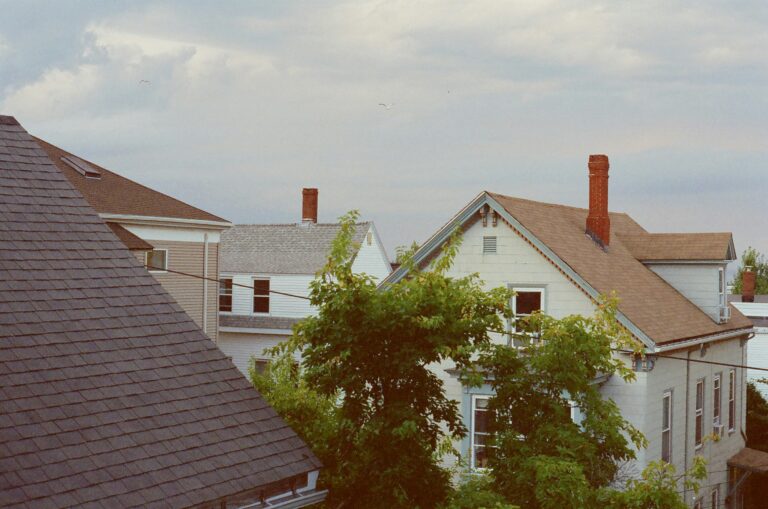Choosing a roof style is one of the most important decisions you’ll make when building or renovating your home. In New Jersey, homeowners typically have two main options: flat roofs and pitched roofs. Each style has its own advantages and challenges, and the right choice depends on your home’s design, your lifestyle, and your long-term maintenance preferences.
Here’s a closer look at both options to help you make an informed decision.
Flat Roofs
Flat roofs are a popular option in modern home design as well as on many commercial buildings. While they’re not perfectly flat, they have a very low slope that gives them their distinctive look.
Pros of Flat Roofs
- Modern Aesthetic: Flat roofs give homes a sleek, contemporary appearance.
- Usable Space: Many homeowners use flat roofs for rooftop patios, terrace gardens, or HVAC system placement.
- Easier Access: Maintenance, cleaning, and inspections are generally simpler on a flat surface.
Cons of Flat Roofs
- Drainage Issues: Because of the low slope, water doesn’t run off as quickly. Without proper drainage systems, this can lead to pooling and leaks.
- Shorter Lifespan: Flat roofing materials typically need replacement sooner than pitched roofs.
- Limited Insulation: Flat roofs may not provide the same natural insulation that pitched roofs offer, which can affect energy efficiency.
For homeowners looking for a clean, modern look or extra outdoor space, a flat roof can be a great choice, but it requires regular maintenance to ensure water and debris don’t cause problems.
Pitched Roofs
Pitched roofs, the traditional sloped style seen on most homes in New Jersey, remain the most common choice for residential properties. Their angled design has both aesthetic and practical benefits.
Pros of Pitched Roofs
- Excellent Drainage: Rain and snow slide off easily, reducing the risk of leaks or water damage.
- Longer Lifespan: With the right materials, pitched roofs often last decades longer than flat roofs.
- Classic Look: Many homeowners prefer the timeless style of a pitched roof, which complements a wide range of architectural designs.
- Energy Efficiency: The attic space created by a pitched roof can provide better insulation and ventilation.
Cons of Pitched Roofs
- Higher Initial Cost: Pitched roofs are generally more expensive to install.
- Less Usable Space: Unlike flat roofs, they don’t provide the option for a rooftop patio or garden.
- More Difficult to Access: Maintenance tasks like gutter cleaning or inspections can be more challenging and may require professional help.
For many families, the durability and lower long-term maintenance needs of a pitched roof make it a worthwhile investment.
What’s Best for New Jersey Homes: Flat or Pitched Roofs?
New Jersey’s climate is an important factor when deciding between flat and pitched roofs. With heavy snowfall in winter and frequent rain throughout the year, pitched roofs generally perform better for long-term durability. Their natural drainage helps protect homes against leaks and water damage.
That said, flat roofs can still be a great option for homeowners who value modern design or extra space for outdoor living, especially when paired with a reliable drainage system and consistent maintenance.
Ultimately, the best choice comes down to balancing your home’s design, budget, and lifestyle needs.
At DSK Roofing, we help homeowners choose and install the right roofing system for their property, with expert guidance tailored to New Jersey’s unique climate. Contact us today to schedule a consultation.

